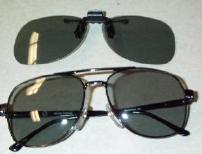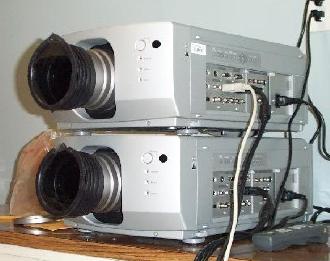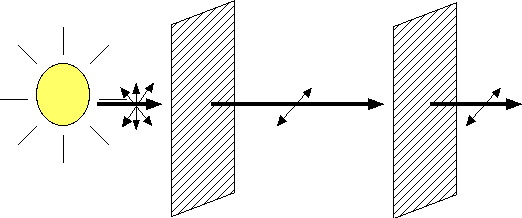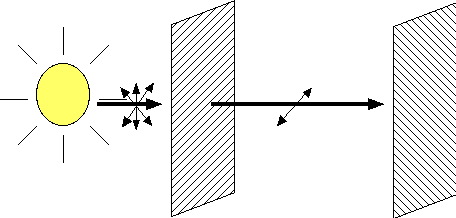
| 
|
A single "ray" of light has a particular polarization direction, perpendicular to direction of propagation.
Ordinary light usually is polarized equally in all directions.
A polarizing filter allows only light polarized a certain direction to pass through.


With 2 polarizers, we can either allow light to pass through, or
block all the light.
(Where "all" = 90+%)
Put one filter on a projector, second in glasses.

| 
|
Problem: tilting one's head affects filtering and hurts stereo.
Combining a linear polarizer and a quarter-wave retarder produces circular polarization.
Circular polarization can be left-handed or right-handed (clockwise or counterclockwise).
Circular polarization is immune to the "head-tilt problem".



General problems: